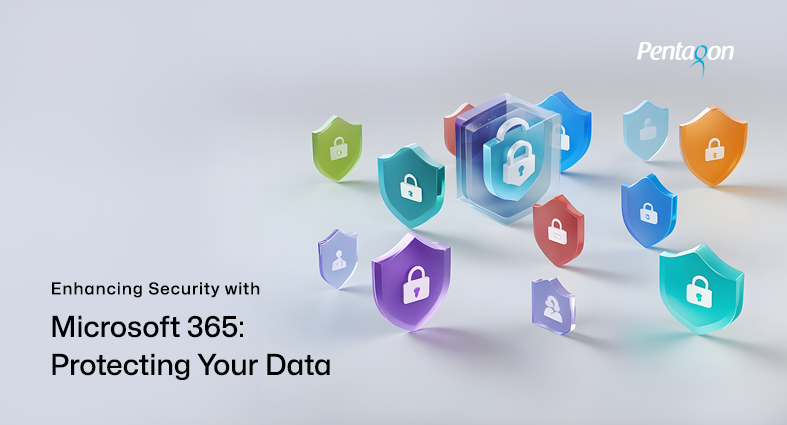Web hosting is the foundation of any website, providing the server space and infrastructure necessary to make your online presence accessible to the world. However, in today’s competitive digital landscape, web hosting services have evolved beyond just providing server space. Reputable web hosting providers now offer a range of valuable add-ons and extra services that enhance the functionality, security, and overall performance of your website. In this comprehensive guide, we will explore the significance of these additional services offered by web hosting providers. These add-ons play a pivotal role in empowering your website with cutting-edge features, protecting sensitive data, and providing a seamless user experience for your visitors. Whether you’re a small business owner, an entrepreneur, or an individual looking to establish a personal website, understanding the benefits of these essential add-ons is crucial for maximizing the potential of your online presence.
Domain Registration
Domain registration is a fundamental step in establishing your online presence. It involves reserving a unique web address (URL) that users can type into their browsers to access your website. The domain name serves as your website’s online identity and is crucial for branding, recognition, and establishing credibility in the digital world. Let’s delve deeper into the importance of domain registration and its various benefits for website ownership. By registering a domain, you are effectively staking your claim in the vast virtual landscape, ensuring that users can easily find and access your website with a simple and memorable web address.
Domain Registration and its Role in Website Ownership
Domain registration is akin to claiming a piece of virtual real estate on the internet. When you register a domain, you are essentially securing the rights to that specific web address for a designated period, typically one year. During this time, you have exclusive rights to use that domain for your website, email addresses, and other online activities associated with your brand. Without domain registration, your website would lack a unique URL and would be inaccessible to users unless they know the IP address associated with your hosting server. This would make your website impractical and challenging to find, significantly hindering your online visibility and limiting your potential audience.
Benefits of having a Unique and Relevant Domain Name
- Brand Identity: Your domain name is often the first point of contact between your brand and potential customers. A unique and memorable domain name helps build brand recognition and establishes a strong online identity. It differentiates your business from competitors and makes it easier for customers to recall and return to your website.
- Credibility and Professionalism: A domain name that reflects your business name or industry adds a level of professionalism and credibility to your website. It reassures visitors that they are dealing with a legitimate and trustworthy entity, increasing their confidence in your products or services.
- Search Engine Visibility: Search engines, like Google, consider domain names when ranking websites in search results. A relevant domain name that aligns with your content and keywords can improve your website’s search engine visibility and organic traffic.
- Targeted Marketing: A relevant domain name can convey the nature of your business or the products and services you offer. This helps attract the right audience to your website and enables targeted marketing efforts, enhancing the chances of conversion and engagement.
- Email Branding: Registering a domain allows you to create professional and customized email addresses using your domain name (e.g., info@yourdomain.com). This reinforces your brand identity and creates a more polished image when communicating with customers or clients via email.
Tips for Choosing the Right Domain
- Reputability: Opt for reputable domain registrars with a track record of providing reliable and secure domain registration services. Look for registrars accredited by the Internet Corporation for Assigned Names and Numbers (ICANN) for added assurance.
- Domain Extensions: Consider the variety of domain extensions (TLDs) offered by the registrar. While .com is the most popular, there are various other options, such as .net, .org, and location-specific extensions (.ae for Abu Dhabi). Choose an extension that aligns with your business and audience.
- Customer Support: Ensure the registrar offers responsive customer support to assist you with any domain-related queries or technical issues.
- Domain Management Tools: Look for registrars that provide user-friendly domain management tools to make it easy to update, transfer, or renew your domain.
- Pricing: Compare domain registration prices among different registrars. Some registrars offer introductory discounts, while others may include additional services or privacy protection in their packages. Consider the renewal costs after the initial registration period.
SSL Certificates
SSL (Secure Sockets Layer) certificates play a crucial role in ensuring website security and protecting sensitive data exchanged between a website and its visitors. When a website has an SSL certificate, it establishes an encrypted connection between the web server and the user’s browser. This encryption scrambles the data, making it nearly impossible for unauthorized parties to intercept or access it. The significance of SSL certificates lies in safeguarding sensitive information, such as login credentials, credit card numbers, and personal details, from potential cyber threats, hackers, and data breaches. By encrypting data during transmission, SSL certificates prevent malicious actors from eavesdropping or tampering with the information exchanged between users and the website.
Different types of SSL certificates
- Domain Validated (DV) SSL Certificate: This is the basic level of SSL certificate that validates the ownership of the domain. DV certificates are quick to obtain and are suitable for basic websites and personal blogs.
- Organization Validated (OV) SSL Certificate: OV certificates require a higher level of validation, where the certificate authority verifies the organization’s identity. They are ideal for small businesses and e-commerce websites, as they display additional information about the website owner in the certificate.
- Extended Validation (EV) SSL Certificate: EV certificates offer the highest level of validation and display the company name prominently in the browser’s address bar. The rigorous validation process provides a green address bar, instilling maximum trust in visitors. EV certificates are commonly used by established businesses, financial institutions, and e-commerce platforms.
- Wildcard SSL Certificate: A wildcard SSL certificate secures the main domain and all its subdomains. This is beneficial for websites with multiple subdomains, such as e-commerce platforms or large corporations.
Website Builders
Website builders are online tools that allow users to design, customize, and publish websites without having to write code from scratch. They provide a user-friendly interface that simplifies the web design process, enabling even those without any technical background to create stunning websites. With website builders, users can access a vast collection of pre-designed templates tailored to various industries and niches, giving them a head start in building their online presence. The drag-and-drop functionality is a standout feature of website builders, allowing users to easily move elements, such as text, images, and videos, around the website layout. This intuitive approach enables users to visualize the design in real-time and customize the website’s appearance without any coding skills. The ability to see the changes instantly empowers users to experiment with different layouts and styles, making the design process a creative and enjoyable experience.
Pricing Models and Considerations
Website builders offer various pricing models, ranging from free plans to subscription-based packages with different tiers of features. Free plans often come with limitations, such as displaying the website builder’s branding, limited storage space, or fewer customization options. As businesses grow, they may opt for premium plans that offer more advanced features, additional storage, and the ability to connect a custom domain. When choosing the right website builder, businesses should consider their specific needs and objectives. Factors to consider include the number of pages needed, e-commerce functionalities, integration with third-party tools, and the level of customer support provided. Some website builders cater to specific industries, offering specialized templates and features that align with certain business types. Evaluating these considerations helps businesses make an informed decision and select a website builder that best suits their requirements and budget.
Email Hosting
Email hosting is a service offered by web hosting providers that allows businesses and individuals to create and manage custom email addresses using their domain name (e.g., yourname@yourdomain.com). Unlike generic email providers like Gmail or Yahoo, email hosting provides users with a professional and branded email identity, which has several advantages for businesses and organizations. Having a professional email address that includes your domain name is crucial for building a strong brand identity and establishing credibility in the digital landscape. When you use a custom email address, it reinforces your brand with every communication you send. It portrays a more polished and trustworthy image, making it easier for clients, customers, and partners to recognize and remember your brand. In contrast, using generic email addresses can give the impression of a less established or less serious business.
Benefits of Email Hosting
- Enhanced Data Security: Email hosting services offer advanced security measures to protect your sensitive data and communications. These measures often include encryption protocols, firewall protection, and spam filtering to keep malicious emails at bay. By utilizing email hosting, you safeguard your business communications from potential cyber threats and data breaches.
- High Reliability: Email hosting providers operate on robust and redundant server infrastructure, ensuring high availability and uptime. This means that you can access your emails at any time, without worrying about downtime or server outages. The reliable service ensures seamless communication, minimizing disruptions in your business operations.
- Customization and Scalability: With email hosting, you can customize your email services to suit your specific requirements. You have the flexibility to set up multiple email accounts for different team members, departments, or projects. As your business grows, email hosting services are easily scalable to accommodate your expanding needs without any hassle.
- Access Anywhere, Anytime: Email hosting services enable you to access your emails from any device with internet connectivity. Whether you are in the office, on the go, or working remotely, you can stay connected and respond to important messages promptly. This accessibility enhances collaboration and productivity for your team.
- Professional Appearance: A professional email address lends credibility and professionalism to your communications. It signals to recipients that you are a legitimate and serious business entity, which can positively impact your business relationships and networking efforts.
Comparing Pricing and Storage Options
- Pricing Tiers: Hosting providers typically offer different pricing tiers, each with varying levels of features and storage capacity. Consider your budget and the specific needs of your business when selecting the most suitable plan.
- Storage Space: Evaluate the storage capacity provided by each plan. Depending on your email usage and the volume of emails you anticipate, you may need a plan with sufficient storage space to accommodate your requirements.
- Number of Accounts: Determine how many email accounts your business needs. Some plans may limit the number of email accounts allowed, while others may offer unlimited accounts.
- Additional Features: Look for additional features such as calendar integration, contact synchronization, and collaboration tools. These features can enhance productivity and streamline communication within your team.
- Security Measures: Assess the security features provided by each hosting provider. Look for encryption protocols, spam filtering, and other security measures that can protect your data and communications.
Content Delivery Network (CDN)
A Content Delivery Network (CDN) is a network of servers strategically distributed across various geographical locations to improve the delivery of website content to users. By utilizing CDN technology, web hosting providers can ensure faster and more efficient content delivery, resulting in enhanced website performance and user experience. CDNs work by creating copies of the website’s static content, such as images, videos, CSS files, and JavaScript, and distributing these copies to multiple servers located in different regions. When a user visits the website, the CDN identifies the server nearest to the user’s location and delivers the content from that server. As a result, content delivery is faster and more efficient, reducing latency and minimizing load times.
Popular CDN providers
- Cloudflare: Cloudflare is a widely used CDN provider known for its global network of servers and robust security features. They offer a range of plans suitable for businesses of all sizes and provide additional services such as DDoS protection and website optimization.
- Akamai: Akamai is one of the largest and most established CDN providers, with an extensive network of servers and a focus on enterprise-level performance and security. They offer customizable plans tailored to meet the specific needs of large-scale websites and applications.
- Amazon CloudFront: Part of Amazon Web Services (AWS), CloudFront is a flexible and scalable CDN solution that integrates seamlessly with other AWS services. It is an excellent choice for businesses already using AWS for other cloud services.
- MaxCDN (now StackPath): MaxCDN, now part of StackPath, provides a user-friendly and cost-effective CDN solution with a straightforward pricing structure based on the amount of data transferred.
Website Backups and Restorations
Regular website backups are a critical aspect of safeguarding your website and its valuable data. They act as a safety net, ensuring that you can restore your website to a previous, functional state in the event of data loss, hacking attempts, server crashes, or other unforeseen circumstances. In this section, we will delve into the significance of regular website backups, the benefits of automated backup services, and the considerations to keep in mind when choosing a reliable website backup solution. Regular website backups act as a safety net, creating copies of your website’s data and files at scheduled intervals. By having these backups readily available, you can easily restore your website to a previous working state and minimize downtime and data loss.
DDoS Protection
Distributed Denial of Service (DDoS) attacks are among the most common and disruptive cyber threats faced by websites and online services. In a DDoS attack, multiple compromised devices are used to flood a target server or network with an overwhelming volume of traffic, rendering it inaccessible to legitimate users. The goal of such attacks is to disrupt normal operations, causing downtime, loss of revenue, and damage to a company’s reputation. Let’s dive deeper into DDoS attacks, the benefits of DDoS protection services, and the factors to consider when choosing the right DDoS protection for your website.
Benefits of DDoS protection
- Traffic Filtering: DDoS protection services use sophisticated traffic filtering techniques to identify and block malicious traffic while allowing legitimate traffic to flow through. By filtering out attack traffic, these services ensure that your website remains accessible to genuine users.
- Scalability: DDoS protection services can scale their capacity in response to changing attack patterns, allowing them to handle large-scale attacks effectively.
- Real-Time Monitoring: DDoS protection services continuously monitor incoming traffic and detect anomalies indicative of a DDoS attack. This proactive approach enables swift action in response to an ongoing attack.
- Rapid Mitigation: When a DDoS attack is detected, DDoS protection services automatically trigger mitigation measures, diverting attack traffic away from the target and minimizing the impact on the website.
- Global Network Infrastructure: Many DDoS protection providers operate a distributed network of scrubbing centers strategically located around the world. This global infrastructure helps to distribute attack traffic, ensuring that it is dispersed across multiple locations, reducing the impact on any single server.
Website Security Scanning and Malware Removal
Website security scanning involves conducting comprehensive scans of your website’s code, files, and database to identify potential vulnerabilities and security risks. These scans are crucial for early detection and assessment of weaknesses that could be exploited by hackers. By regularly performing security scans, you can stay ahead of potential threats and take proactive measures to strengthen your website’s defense against cyber attacks. The primary goal of website security scanning is to pinpoint areas that may be susceptible to hacking attempts, data breaches, or unauthorized access. Vulnerabilities can arise from outdated software, insecure plugins, weak passwords, or misconfigurations. Identifying and addressing these vulnerabilities promptly can prevent potential security breaches and protect your sensitive data, your customer’s information, and your website visitors’ trust.
Technical Support and Customer Service
Technical support is essential for website maintenance because it helps address any technical problems or issues that may arise during the hosting journey. From server-related concerns to website performance optimizations, a reliable support team can assist users in resolving a wide range of challenges effectively. Technical support ensures that your website runs smoothly, minimizing downtime and potential disruptions that could impact user experience and online reputation. Furthermore, website owners may not always possess extensive technical knowledge or expertise. In such cases, having access to a knowledgeable support team can be invaluable, as they can provide guidance, recommendations, and solutions tailored to your specific needs. Quick and efficient technical support enables website owners to focus on their core business activities rather than getting bogged down by technical complexities.
Conclusion
Web hosting add-ons are vital services that enhance the functionality, security, and overall success of your website. From domain registration and SSL certificates to website builders and technical support, each add-on plays a crucial role in ensuring a seamless and secure online presence. By carefully considering your website’s specific needs and budget, you can choose the right combination of add-ons to optimize your website’s performance, build trust with visitors, and ultimately drive online success. Embracing these essential services empowers businesses to fortify their website’s fortress and confidently navigate the digital landscape with a strong and reliable online presence. Unlock the full potential of your website with our top-notch web hosting services. From domain registration to SSL certificates, website builders, and more, we’ve got you covered. Contact us now and let our experts take your online presence to the next level!
services
Feel free to send us a message.
Please, share your thoughts, and let's chat over a cup of tea.




















